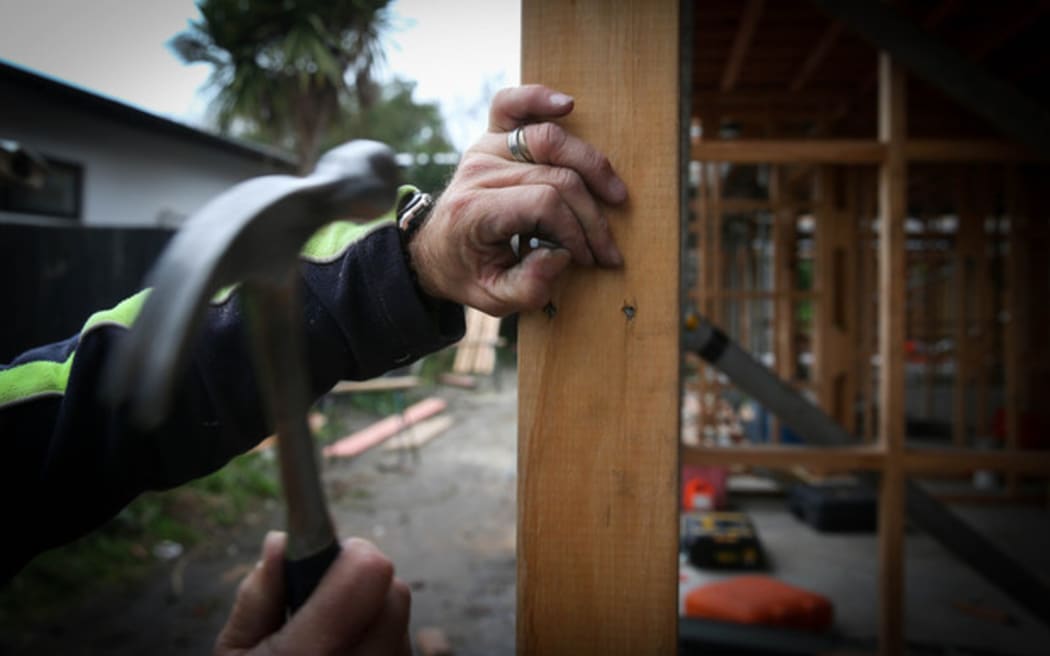
The number of apprentices and other on-job learners in the system dropped by 16,000 in a year. File photo. Photo: RNZ/ Alexander Robertson
Enrolments in workplace learning - Te Pūkenga's only profitable division - have plummeted, but those in its loss-making polytechnics have grown.
The institute had 60,515 apprentices and other on-job learners in early April, 16,000 fewer than the same time last year.
The 21 percent drop has struck the only part of the organisation to make surpluses.
The 60,515 learners equated to 8329 equivalent-full-time learners, the basis on which government funding is calculated, which was 2415 fewer than at the same time in 2023.
Balancing the fall in workplace learners, the number of full-time students in the organisation's polytechnics jumped nearly six percent from 43,541 in early April last year to 45,989 this year.
The institute's 2023 annual report is yet to be published, but last year a briefing paper for the incoming government said its polytechnics would collectively lose $185m, while the workplace learning division would make a surplus of $100m.
It was not clear how this year's enrolment trends would affect its financial result.
Te Pūkenga told RNZ it was too early to predict its 2024 financial situation.
It said workplace learner numbers had dropped for reasons including the end of a fund that allowed learners to train without paying fees and immigration changes that meant foreign employees were no longer eligible for government funding for their training.
Education Minister: 'I am monitoring their progress closely'
A decline in work-based training and increase in polytechnic enrolments during recessions, when jobs are harder to find, is a long-standing pattern.
But Tertiary Education Minister Penny Simmonds said the rise in student enrolments reflected increased confidence from students and the sector as the government disestablished Te Pūkenga.
She said it also reinforced the government's decision to disestablish Te Pukenga and put the focus back on students and learning,"rather than a bloated and bureaucratic head office".
"I am also pleased to see regional decision-making return to the sector, but I am monitoring their progress closely to ensure that it meets our expectations," she said.
Simmonds said disestablishing Te Pūkenga and returning to a system polytechnics and industry training would take longer than the government expected
"While there is no specific timeline yet for the disestablishment and establishment of new ITPs [institutes of technology and polytechnics] we will work with the sector to ensure we effect the positive changes required as soon is practicable to give staff, learners, industry, and communities long term certainty.
"To disestablish Te Pūkenga will require legislative change. The disestablishment is more complex than we initially anticipated due to the dense bureaucratic structure formed by Labour," she said.
Simmonds said she planned to take an initial paper to Cabinet this quarter and then start consultation with the sector and the community on the government's proposal.
All positions reviewed
Meanwhile, the institute said it was reviewing all positions in its national office as it continued to prepare for disestablishment required by the government.
It said it was consulting with 79 head office staff to either disestablish their positions, devolve them to other divisions, or change their role to assisting with disestablishing Te Pūkenga and create the entities that will replace it.
It said it had devolved more decision-making and responsibilities to its regional directors and leaders.
It had also stopped a restructure undertaken in September last year which had been intended to drive efficiencies and reduce duplication.





